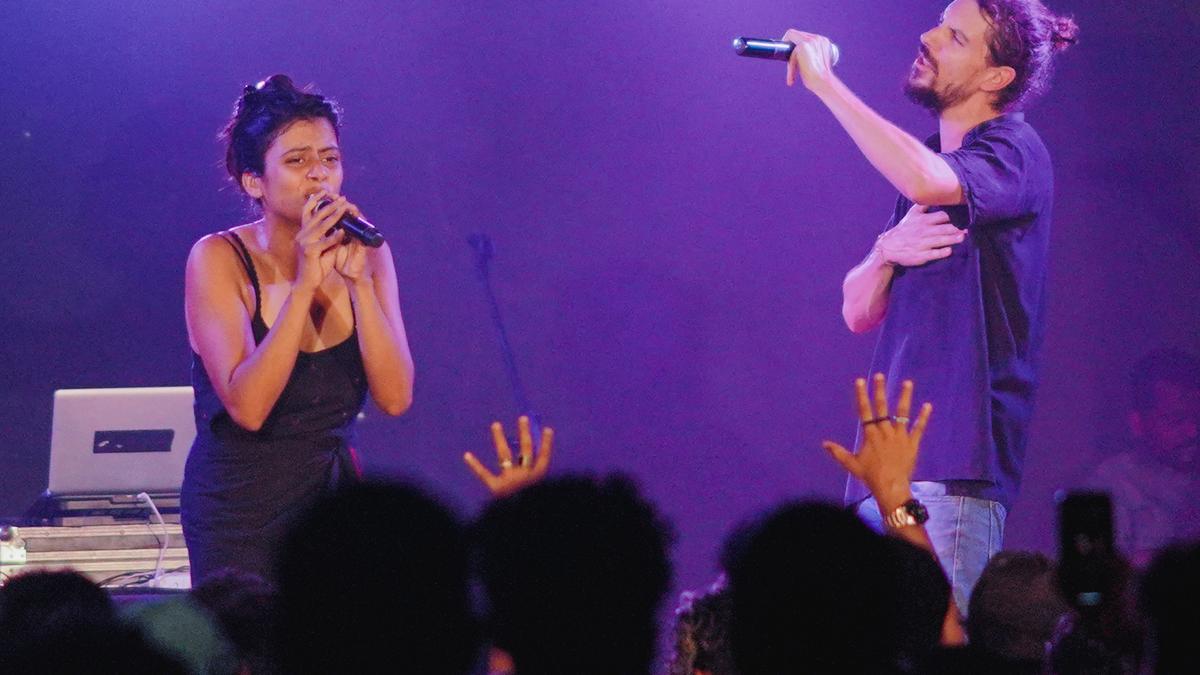
Indo-French duo CITOPIR to bring their brand of hip-hop meets social change to Mumbai’s NMACC
The Hindu
CITOPIR: Indo-French duo blending hip-hop and environmental awareness in a multi-sensory debut performance at NMACC on January 10.
CITOPIR’s origins trace back to a serendipitous meeting in 2017. Introduced by Asian beatboxer Mic Lee, Manmeet Kaur and Flavien discovered a shared appreciation for hip-hop, graffiti, and a passion for exploring natural landscapes. Their synergy as artists evolved into a collaborative journey that merges their individual styles into a cohesive audio-visual experience. Flavien’s mastery of beats and soundscapes pairs seamlessly with Kaur’s incisive lyricism and dynamic stage presence, creating a performance that speaks to both the head and the heart.
On January 10, the Nita Mukesh Ambani Cultural Centre (NMACC) will host the debut audio-visual performance of the Indo-French duo. Scheduled at The Cube, the show promises to be more than just entertainment — it is a call to action on themes of inclusivity, social change, and environmental awareness.
At the core of CITOPIR’s work is the belief that art can catalyse social transformation. Through projects such as Reverse, an interdisciplinary audio-visual workshop for young people and adults that they launched in the country in 2023, the duo engages with diverse communities to co-create music and poetry. These interactions directly influence their songs and visuals, imbuing their art with authenticity and lived experiences. Their EP Wabi Sabi, inspired by the Japanese philosophy of embracing imperfection, challenges societal prejudices and advocates for a deeper acceptance of oneself and others.
“Our art is an extension of the world we envision — a space of empathy, respect, and collective growth,” says Manmeet. “We hope to inspire audiences to see inclusivity not as an abstract ideal but as an actionable way of life.”
Bridging art and environmental awareness
In an age of environmental urgency, CITOPIR tackles ecological themes with ingenuity. Workshops form a cornerstone of their practice, encouraging participants to make music with discarded objects and elements of Nature. These activities, coupled with clean-up drives and mural projects using eco-friendly materials such as terracotta and choona (lime plaster), underscore their commitment to sustainable practices.
“The challenge lies in making these pressing issues engaging,” Flavien shares. “We want audiences to connect emotionally with the idea of environmental stewardship while enjoying a performance that’s vibrant and thought-provoking.”

Thomas Jefferson and Abraham Lincoln are two of the greatest presidents that the U.S. has seen. You probably know that already. But did you know that Jefferson made what is considered the first contribution to American vertebrate paleontology? Or that Lincoln is the only U.S. president to receive a patent? What’s more, both their contributions have March 10 in common… 52 years apart. A.S.Ganesh hands you the details…












